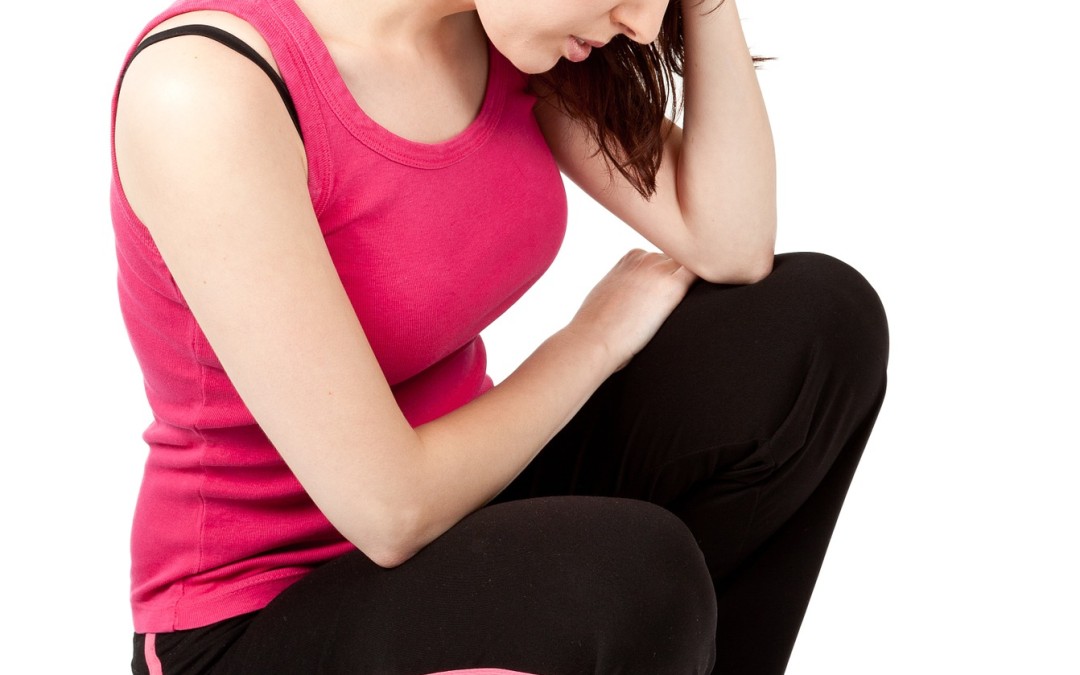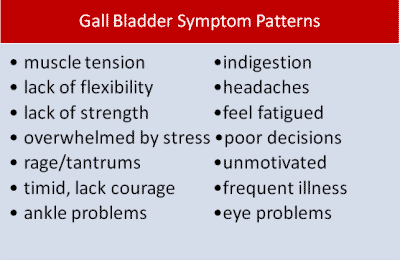If you’ve never had gallstones, you’ve probably never thought about your gallbladder. However, if you have had gallstones, chances are good that you have had your gallbladder removed. Either situation has its own inherent issues, and one thing that healthcare providers rarely tell gallbladder patients is that surgery will forever impair their digestion and may make losing weight very, very difficult.
The gallbladder is a small, pear-shaped organ under your liver that concentrates and stores the bile that your liver produces to aid fat digestion. Most people don’t give it a second thought until it starts to trouble them, and unfortunately, for many years, the medical establishment didn’t realize the full importance of healthy gallbladder function. They felt its removal had few, if any consequences. I am of the opinion that we were not designed with unnecessary parts, and the gallbladder is no exception. In fact, science is just beginning to understand the true importance of healthy gallbladder function and the detrimental consequences of its dysfunction or removal.
Each day, your liver produces ~27-34 ounces of greenish-brownish-yellow bile, which is concentrated anywhere from 5-18 times, and then 1-3 oz is stored in the gallbladder awaiting your next meal. When you consume foods containing dietary fats, your gallbladder is triggered to release this concentrated bile into the first part of the small intestine, the duodenum, where it acts as an emulsifier to break down those fats and aids in the absorption of the fat soluble vitamins, A,D,E, & K, and any essential fatty acids. If you have ever vomited until a bitter, yellow substance came up — that was bile, and while you may not have thought so at the time – bile itself is an amazing substance. Comprised of bile acids, bile salts, cholesterol, phospholipids, pigments, water, electrolytes, and amino acids, bile is a bitter, acidic substance that breaks down fats into components that the body can use. Healthy fat absorption is crucial to our health. In fact, we were designed to eat fats rich in healthy fats. Our brains, our hormones, and even our very cell walls are dependent on a steady and healthy supply of fat soluble vitamins and essential fatty acids.1 Vitamin A is an important antioxidant that plays a crucial role in cell division, cell differentiation, reproduction, immune function, growth, and vision. Vitamin D is a pro-hormone which not only regulates calcium metabolism, but is essential for the functioning of the nervous system, for bone health, for muscle strength, for immune function, regulating blood pressure, hormone production and for cell differentiation. Vitamin E is a blanket term for eight different nutrients (4 types of tocopherols and 4 types of tocotrienols) that have string antioxidant properties and also play a role in immune function, healing, repair, and cardiovascular functioning. Vitamin K is a nutrient that scientists are just starting to devote research time to. It is known to play a key role in bone health, blood clotting, and heart disease, but studies are showing that it may have many more far-reaching effects. Essential fatty acids (EFA’s), such as omega-3 fatty acids, are ESSENTIAL to human functioning. Long recognized for its powerful anti-inflammatory benefits, EFA’s are required to make the cell walls of every cell in your body and they play a key role in immune functioning, musculoskeletal health, cognitive function, and heart disease. Considering the overwhelming importance of fatty acids and fat soluble nutrients to general health, it makes no sense to willingly cut out gallbladders with no plan of action to compensate for the deficit caused by its dysfunction or removal. Whether you have a gallbladder that isn’t doing its job or you have already lost yours – there is a solution.
So, how does all of this apply to lack of weight loss — or worse, weight gain?
In simplistic terms, the body is a finely tuned organism. We need 17 nutrients in specific quantities just to make adequate levels of stomach acid and other digestive substances. When gallbladders dysfunction, two things can happen: First, the bile gets too thick and stagnant, which creates an ideal situation for gallstone formation. Second, when gallstones impair or block the emptying of the gallbladder, fat digestion decreases dramatically, which in turn, puts your body into starvation mode. The body requires the absorption of those fat soluble vitamins and essential fatty acids, but it recognizes it is in a chronically deficient state – so it hangs on to the fat it has (which unfortunately may be that stomach pooch) for dear life. You in turn want to lose that stored fat, and may erroneously take on a low-fat diet at the advice of your healthcare provider, which only makes the matter worse.
Causes/Risk of Gallbladder Dysfunction
- hypochlorhydria (low stomach acid)
- low fat diets
- high fat diets
- food allergies and sensitivities
- gluten intolerance
- being overweight
- dieting, rapid weight loss
- pregnancy
- sedentary lifestyle
- birth control pills or hormone replacement therapy
- heartburn
- use of antacids and Proton Pump Inhibitors (PPIs)
- 40+ years of age
- females are at greater risk in the United States (in other countries, males can be at higher risk – it is thought that alcohol consumption plays a causative factor there). Women that have birthed children also have a greater risk of developing gallbladder dysfunction
- alcohol use (the more you drink, the greater your risk)
- bariatric surgery
- ethnicity (more prevalent in Native American populations and Hispanics)
- family history of gallbladder issues
- extreme diets which eliminate any key food group
- elevated cholesterol, especially high triglycerides or LDL
- consumption of statin medication or immunosuppressive medication
- medical conditions including hypothyroidism, diabetes, insulin resistance, inflammatory bowel disease, PCOS, hemolytic anemia, etc.
- western diets, diets high in refined carbohydrates and sugars
That’s a long list of risk factors – it’s a miracle that anyone has a normal functioning gallbladder given our Standard American Diet (SAD) and reliance on fried and processed foods. In fact, gallbladder dysfunction is so common that clinicians refer to it as the 4-F syndrome: Female, Fat, Forty+, Flatulent. However, most people with gallbladder dysfunction are asymptomatic. Studies estimate that anywhere from 67-80% of people with gallstones have no symptoms. That said, many people discount gallbladder symptoms as being related to poor digestion or other factors. Everyone with gallstones started off with thick or stagnant bile. You have to have one to lead to the other. The pattern of symptoms associated with gallbladder dysfunction is so varied that many people without digestive pain may not associate their muscle pain, dry skin, poor wound healing, dry (or shedding) hair, headaches, heel calluses, or inability to lose weight despite doing everything right with a gallbladder that is not operating at par.
Symptoms of gallbladder dysfunction: Most commonly: pain or discomfort after eating. This can include gas, bloating, belching, heartburn, nausea, queasiness abdominal discomfort, extreme fatigue, pain under the ribs, particularly on the right side, or shoulder pain. Additional symptoms include headaches over the right eye, constipation or diarrhea, light colored or ‘floating’ stools, dark urine, offensive body odor or breath. People with gallbladder dysfunction tend to have bowel extremes — they experience diarrhea (up to 10 bowel movements per day) or constipation (often having days between bowel movements) and rarely have normal bathroom habits.
Have you had your gallbladder removed? You are not alone. Over half a million gallbladders are removed every year in the US. It is one of the most commonly performed surgical procedures. Symptoms of postcholecystectomy syndrome (PCS): gas, bloating, belching, heartburn, nausea, queasiness abdominal discomfort, extreme fatigue, pain under the ribs, particularly on the right side, or shoulder pain. The need to run to the bathroom immediately after eating is fairly common. Additional symptoms include headaches over the right eye, constipation or diarrhea. Notice the symptoms are almost exactly the same for people with NO gallbladder as for those with a dysfunctional one? Researchers estimate that at least 40% of people who have had gallbladder removal continue to experience significant abdominal pain.2 It is estimated that 5-40% of people who have had a cholecystectomy experience long term symptoms from it . 3 One British study looking at the after-effects of gallbladder surgery found that 87% of men and 68% of women experienced weight gain after cholecystectomy and urged physicians to caution patients about this ‘side-effect.4 I can easily say that in my 12 years of practice, I have NEVER had a gallbladder patient tell me that they were informed of the likelihood of weight gain prior to their surgery!
Where Weight Gain & Weight Loss Issues Come into Play
Having a dysfunctioning gallbladder or having no gallbladder are both associated not only with difficulty losing weight, but with weight gain. Anecdotal reports are abound of women having few issues maintaining their healthy weight until they had gallbladder removal surgery. On a functional level, we know that nutritional deficiencies are associated with difficulty losing weight, and by drastically impairing fat digestion through having stagnant bile or by surgical removal of the gallbladder – we create the foundation for broad-spectrum health disorders. Our bodies are designed to maintain an equilibrium, or steady state. It craves balance. So when we have gross nutritional deficiencies, our bodies inherently want to hang on to its stores of fat and nutrients. It doesn’t want to exacerbate its deficient status by losing more of anything – and that includes your love handles.
So, what can you do about it?
1) First and foremost, you need to concentrate on eliminating the nutritional deficiencies. This is imperative if you want to get your body out of starvation mode. I suggest that you take a high-quality, highly absorbable multivitamin. Look for a high potency multivitamin that contains more than the 100% RDA amounts. Those amounts were designed to keep a person out of gross deficiency status, they are not amounts your body needs for optimal functioning.
2) The second thing I recommend is supplementing with pancrealipase and organic beet extract. I carry two different formulas – one for people with gallbladders who need to thin their bile so their digestion works better and another for people who no longer have a gallbladder and who need to add ox bile extract in addition to the pancrealipase and organic beet extract so they can start breaking down those dietary fats , get themselves out of a deficient status, and start losing weight. Either formula can be ordered directly from me (message me through facebook), or through the manufacturer. These supplements are only sold through licensed healthcare providers, and I am prohibited from publishing prices publicly, but if you visit my facebook group https://www.facebook.com/groups/weightlossresources/ and check the FILES section. I have included complete ordering information along with a discount code for my clients.
3) Limit your intake of refined carbohydrates. Not only are these typically ’empty’ calories, but they rob you of minerals like magnesium and chromium, and your b-vitamins. They also induce insulin spikes which further stress your liver and gallbladder.
4) Increase your magnesium intake. Whether you take oral magnesium preparations, or you use epsom salt baths – magnesium has been shown to prevent gallstone formation. It is also required for making appropriate levels of stomach acid.
5) Increase your intake of taurine-rich foods. Taurine is one of the major amino acids found in bile. Healthy digestion depends on getting adequate supplies of taurine. Meat, eggs, seafood, certain dairy products, and brewers years are all good sources of dietary taurine.
6) Eat healthy fats! Your body needs fat in order to lose fat. If fat digestion troubles you, start slowly with small amounts of unrefined organic coconut oil and slowly add other healthy oils into your diet. Let your body accommodate to them. Healthy fats include grass-fed butter (which is a source of vitamins A,D,E,K, as well as selenium, and CLA), ghee, lard, egg yolks, organ meat, palm oil, olive oil, most nut oils, etc. Bad fats include corn oil, soy oil, canola oil, sunflower oil, safflower oil, cottonseed oil, margarine, and anything listed as ‘hydrogenated’. These refined oils are a source of omega-6 fatty acids which not only contribute to obesity but cause inflammation within the body, and that includes liver and gallbladder inflammation.

In short, having gallbladder problems or no gallbladder whatsoever need not cause you issues. There are simple solutions that allow your body to work the way it was intended to. You can get the weight off and avoid the bizarre food cravings that come along with those nutrient deficiencies. You can feel normal after meals. You can have normal bowel movements, and you can get rid of the fatigue that overwhelms you. If you combine healthy food choices along with the simple supplements I suggest, you will see results. If you are able to combine the two with lifestyle improvements you will see results that much faster. I sincerely wish that more medical providers educated their patients on the detriments of gallbladder surgery before they submitted to it, so they could take preemptive action, however, in the words of Mick Jagger, “you can’t always get what you want, but if you try sometime, you just might end up with what you need”. So, in closing, I hope this information is what you need. Please visit me on facebook at Weight Loss Resources with Dr. Miranda. If abdominal pain persists, you may have a problem caused by something other than the gallbladder. Other possible causes of abdominal pain include irritable bowel syndrome, inflammatory bowel disease, stomach ulcers, or pancreatitis. Please seek the advice of your licensed healthcare provider to rule out serious health conditions.
1) http://www.webmd.com/digestive-disorders/picture-of-the-gallbladder
2) Hearing, L Thomas, K Heaton, L Hunt
Post-cholecystectomy diarrhoea: a running commentary Copyright © 1999 BMJ Publishing Group Ltd & British Society of Gastroenterology.
3) http://www.webmd.com/digestive-disorders/tc/postcholecystectomy-syndrome-topic-overview
4) Weight gain after cholecystectomy. BMJ 1984; 289 doi: http://dx.doi.org/10.1136/bmj.289.6455.1350 (Published 17 November 1984)Cite this as: BMJ 1984;289:1350
Other sources:
1. Bates T; Ebbs SR; Harrison M; A’Hern RP.Influence of cholecystectomy on symptoms.
Br J Surg. 78(8):964-7, 1991 August
2. E Ros, D Zambon . Postcholecystectomy symptoms. A prospective study of gall stone patients before and two years after surgery. 1987 BMJ Publishing Group Ltd & British Society of Gastroenterology
3. CAROLE MACARON, MD,MOHAMMED A. QADEER, MD, MPH, JOHN J. VARGO, MD, MPH, Cleveland Clinic Journal of Medicine March 2011 vol. 78 3 171-178, Recurrent abdominal pain after laparoscopic cholecystectomy
4. http://www.principlesforparents.com/gall-bladder-energy.html -(graphic)
—
http://mirandajorgenson.com/2014/07/is-your-gallbladder-or-lack-of-stopping-your-weight-loss/


